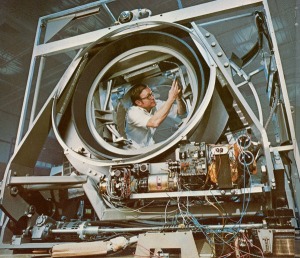

When you realize what is happening globally and how these global changes are dramatically affecting small business players in all avenues of the economy here in the US You realize what is at stake. The very existence of our way of life. Our ability to make a living and what will happen when 3rd party service and sales go away. What you have here in the United States and around the world is Large Global Multi-National corporations who have billions of dollars to influence National governments throughout the world. They shut off used and refurbished markets through back door secret deals and shut off these markets through the National Health departments except for those large multi-national corporations equipment. In the US for years are industry pointed to 21CFR as some type of a way to provide a least a basic set of schematics access to calibration and some basic troubleshooting and repair information allowing manfacturer, end user, and 3rd party the ability to work on and repair equipment. In the early years of these regulations Manufacturers pretty much went along with these requirements. Today you will find most manufacturers give practically no information on the equipment. They limit access to everything but the most mundane and basic information. Many today do not even provide schematics of the equipment. They are not worried, they know that the FDA will not do anything. And on Capital Hill they have an army of lobbiest working to make it easier on themselves and harder on everyone else. From my perspective the only way foward is for legislation to mandate and reinforce the basics laid out in 21 CFR covering more in depth due to the nature of every thing being software driven.To provide a more level playing field for the end users and for 3rd party providers. Short of this and due to the way the FDA interprets 21CFR today. I do not see a long term way foward for this industry. And when the OEM's get rid of us. Watch equipment costs and repair costs skyrocket. We will go back to the days of $250,000.00 dollar CT contracts. And supposed saving in healthcare will be just a mirage. At the turn of the last century are forefathers saw monopolies as a bad thing something that needed to be broken up for the good of society. Today in healthcare you have a small handful of large multi-national global corporations that control a huge percentage of the medical equipment sold in this country and around the world. In most other parts of the world their is no other way to get service or sales except through the OEM. The United States is one of the final area's in the world that has a truly free exchange of medical equipment of all types and has many different people selling and servicing this equipment.
|
|
You Must Be Logged In To Post A CommentRegisterRegistration is Free and Easy. Enjoy the benefits of The World's Leading New & Used Medical Equipment Marketplace. Register Now! |
|
Don Bogutski
In summary of the UDI discussion
July 26, 2012 11:58
This interview should serve as a wake up call to IAMERS Members and non-members alike. We face a growing number of interested, well funded entities that see the vibrancy of our market for pre-owned systems, parts and iOS service. Their number and level of interest expands as the new healthcare market place shrinks. These parties understand that regulations are the most effective way to gain control over this valuable market segment. They are prepared to legislate and regulate us out of existence. If you participate within the frame work of used items, don't allow your company to be lulled to a certain death because the glacial pace of enactment and enforcement puts you to sleep. Individually we are too poor, too weak and too distracted to counter the OEM's momentum. There is no better way to engage this threat, then to become an ACTIVE IAMERS Member.
to rate and post a comment